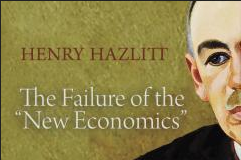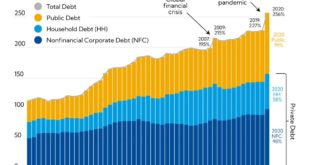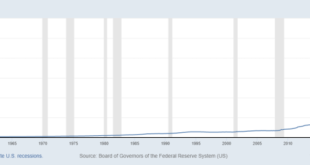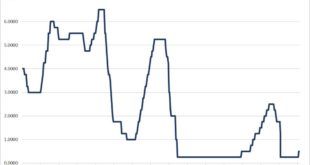[This foreword to Henry Hazlitt’s Failure of the New Economics (available at mises.org free in PDF, ebook, and audiobook) was first published in National Review, August 15, 1959.] For most people, economics has ever been the “dismal science,” to be passed over quickly for more amusing sport. And yet, a glance at the world today will show that we pass over economics at our peril. The influence of economic ideas on human history, especially political history, has been...
Read More »The Chinese Slowdown: Much More Than Covid
The most recent macroeconomic figures show that the Chinese slowdown is much more severe than expected and not only attributable to the covid-19 lockdowns. The lockdowns have an enormous impact. Twenty-six of 31 China mainland provinces have rising covid cases and the fear of a Shanghai-style lockdown is enormous. The information coming from Shanghai proves that these drastic lockdowns create an enormous damage to the population. Millions of citizens without food or...
Read More »Contrary to What Some Economists Claim, the Fed Can’t Give the Economy a “Neutral” Rate of Interest
On April 19, 2022, at the Economic Club in New York, the Chicago Federal Reserve Bank president Charles Evans said the Fed is likely to lift by year end its federal funds rate target range close to the neutral range of between 2.25 to 2.50 percent. Furthermore, on April 21, 2022, Fed chairman Jerome Powell corroborated this by stating that the Fed wants to raise its benchmark rate to the neutral level. By popular thinking, the neutral rate is one that is consistent...
Read More »Forget What the “Experts” Claim about Deflation: It Strengthens the Economy
For most experts, deflation is bad news since it generates expectations for a continued decline in prices, leading consumers to postpone the purchases of present goods, since they expect to purchase them at lower prices in the future. Consequently, this weakens the overall flow of current spending and this, in turn, weakens the economy. Economic activity, believe the experts, is a circular flow of money. Spending by one individual becomes the earnings of another...
Read More »Roots of Our Current Inflation: A Deeply Flawed Monetary System
A monetary system that allows the creation of money out of thin air is vulnerable to the fits of credit expansion and credit contraction. Periods of credit expansion typically occur over many years and even decades while the phases of credit contraction happen like sudden implosions. The monetary policy makers tend to promote the prolongation of credit expansion because they fear deflation. By doing this, however, the central banks prevent monetary moderate deflation...
Read More »Expect Washington to Throw a Fit over China’s New Deal with the Solomon Islands
Washington regards the entire world as its “sphere of influence.” But now Beijing is looking to follow the US playbook on hegemony and expand Beijing’s network of military bases abroad. Original Article: “Expect Washington to Throw a Fit over China’s New Deal with the Solomon Islands” Over the past twenty years, the United States has increasingly tried to claim that Washington does not believe in spheres of influence and that only supposedly imperialist states...
Read More »What Determines Interest Rates? Comparing Mainstream Economics to the Austrian School
The conventional view among mainstream economists, as presented by Milton Friedman, is that three factors determine market interest rates: liquidity, economic activity, and inflationary expectations. In this viewpoint, whenever the central bank raises the growth rate in the money supply by buying financial assets such as Treasurys, this pushes the prices of Treasurys higher and their yields lower. Note that this is the monetary liquidity effect, which inversely...
Read More »The Fed’s New “Tightening” Plan Is Too Little, Too Late
Since 2008, a key component of Fed policy has been to buy up mortgage-based securities and government debt so as to both prop up asset prices and increase the money supply. Over this time, the Fed has bought nearly $9 trillion in assets, thus augmenting demand and increasing prices for both government bonds and housing assets. Moreover, these purchases were made with newly created money, contributing greatly to liquidity and the easy-money policies that have...
Read More »No, It’s Not the Putin Price Hike, No Matter What Joe Biden Claims
Politicians love their buzzwords and talking points, and the Joe Biden White House and the Democratic Party use them as much or more than when Donald Trump and the Republicans ran Washington’s freak show. Last year, the mantra from the Biden administration was that inflation was “transitory,” meaning that the inflation would not last long. From Biden (when he could remember what his talking points were supposed to be) to Paul Krugman in the New York Times, the...
Read More »It’s Mid-2022 and the Fed Has Still Done Nothing to Fight Inflation
It was last August when Jerome Powell began to admit that inflation just might be a problem. But even then, he was only willing to say that inflation would likely be “moderately” above the arbitrary 2 percent inflation standard. Back in August, low inflation—not high inflation—was still perceived to be the “problem.” But things had certainly changed by late November when Powell was forced by reality to retire “transitory” as the preferred adjective to describe price...
Read More » Swiss Economicblogs.org
Swiss Economicblogs.org










